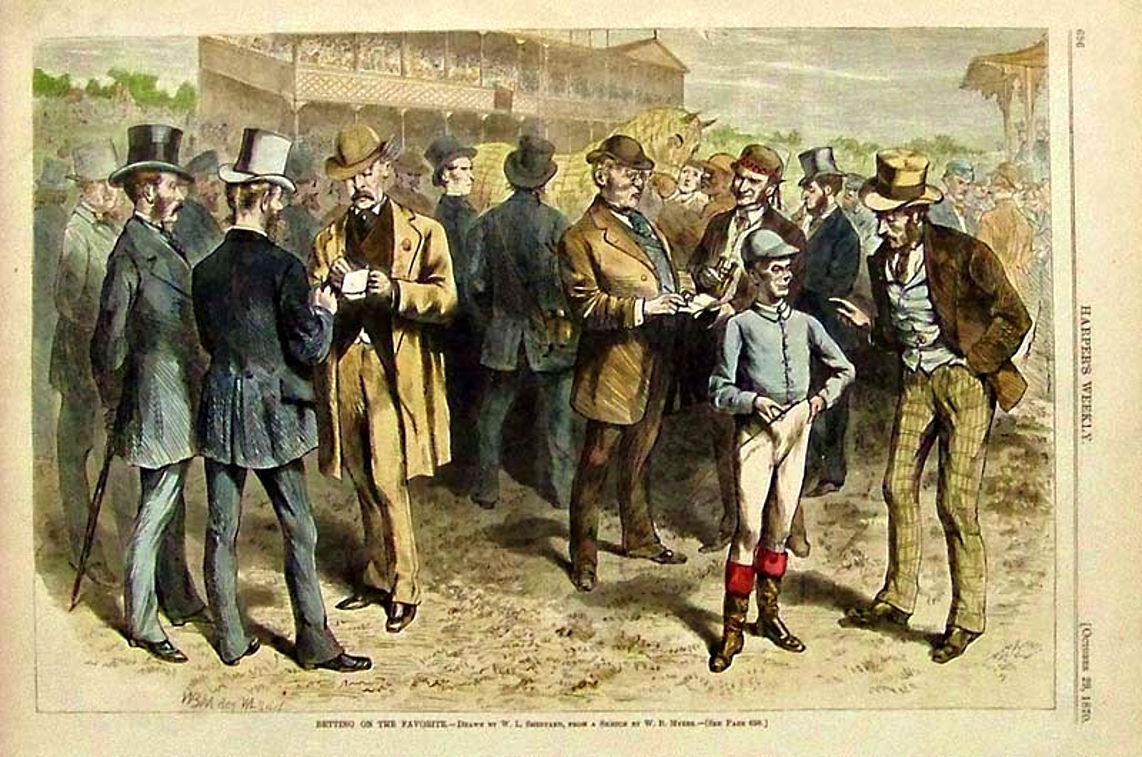
Parimutuel betting
Parimutuel betting or pool betting is a betting system in which all bets of a particular type are placed together in a pool; taxes and the "house-take" or "vigorish" are deducted, and payoff odds are calculated by sharing the pool among all winning bets. In some countries it is known as the tote after the totalisator, which calculates and displays bets already made.
The parimutuel system is used in gambling on horse racing, greyhound racing, jai alai, and other sporting events of relatively short duration in which participants finish in a ranked order. A modified parimutuel system is also used in some lottery games.
Definition[edit]
Parimutuel betting differs from fixed-odds betting in that the final payout is not determined until the pool is closed – in fixed-odds betting, the payout is agreed at the time the bet is sold.
Parimutuel gambling is frequently state-regulated, and offered in many places where gambling is otherwise illegal. Parimutuel gambling is often also offered at "off track" facilities, where players may bet on the events without actually being present to observe them in person.
History[edit]
The parimutuel system was invented by French entrepreneur and showman[5] Catalan impresario Joseph Oller in 1867.[6]
The large amount of calculation involved in this system led to the invention of a specialized mechanical calculating machine known as a totalisator, "automatic totalisator" or "tote board", invented by the Australian engineer George Alfred Julius. The first was installed at Ellerslie Racecourse, Auckland, New Zealand, in 1913, and they came into widespread use at race courses throughout the world. The U.S. introduction was in 1927, which led to the opening of the suburban Arlington Racetrack in Arlington Park, near Chicago, and Sportsman's Park in Cicero, Illinois, in 1932.[7]
Strategy and comparison with independent bookmakers[edit]
Unlike many forms of casino gambling, in parimutuel betting the gambler bets against other gamblers, not the house, which necessarily implies that the bank cannot be broken. The science of predicting the outcome of a race is called handicapping.
Independent off-track bookmakers typically have a smaller take and thus offer better payoffs, but they are illegal in some countries. However, the introduction of Internet gambling led to "rebate shops". These off-shore betting shops promise to return some percentage of every bet made to the bettor. They may reduce their take from 15–18% to as little as 1–2%, while still generating a profit by operating with minimal overhead.